Exercises Following Total Hip Replacement
- ANKLE EXERCISES
Point your feet up and down in a pumping motion. Repeat 10 times every hour to help prevent blood clot formation and pump swelling away from the leg.
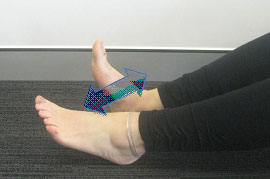
- STATIC QUADS
Tighten the muscles on the front of your thigh and push the back of your knee down into the bed. Hold for five seconds and repeat 10 times every hour.
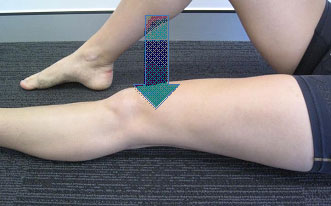
- HIP/KNEE FLEXION (BENDING)
Slide your heel up and down the board as you bend and straighten your knee. (DO NOT bend the hip more than 70 degrees).
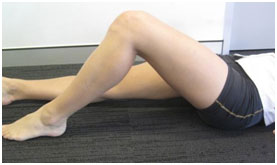
- HIP ABDUCTION (OUT TO SIDE)
With your knee straight, slide your leg out sideways on the board and then back to the middle. (DO NOT cross the midline).
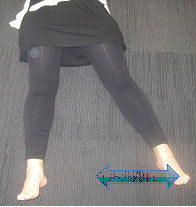
- KNEE EXTENSION OVER ROLL
Place a rolled towel under your knee. Tighten your thigh muscle (quad) to straighten your knee and lift your heel off the bed. Keep your thigh on the roll and your knee as straight as possible. Hold for 5 seconds and lower slowly.
Repeat 10-20 times
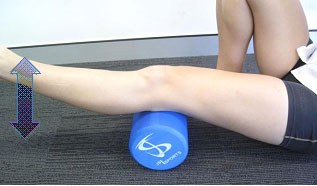
- STRAIGHT LEG RAISE
Tighten your thigh muscle (quad) with your knee FULLY straightened on the bed. As your thigh muscle tightens, lift your leg 30 cm off the bed.
Hold for 5 seconds.
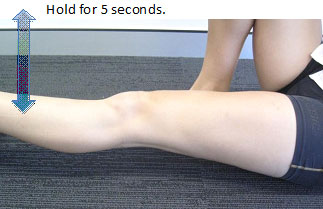
- EXTENSION EXERCISE
Tighten your bottom muscles; push your heels down into the bed. Pull your shoulder blades backwards and together, press your arms into the bed and try to lift your hips. Hold for 5 seconds
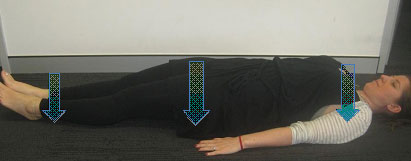
- QUARTER SQUATS
Slowly squat down allowing both knees to bend to about ¼ of a full squat, then slowly straighten back up again. Keep your back straight and allow your knee and hips to do the work.
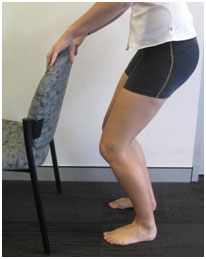
- SIDEWAY LIFTS
Lift your operated leg out to the side, keeping your knee straight and your toes pointing forward. Hold for 3 seconds and lower.
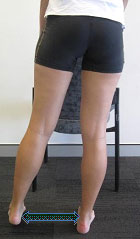
- FORWARD LIFTS
Lift your operated leg forwards, allowing your knee to bend. Hold for 3 seconds and lower
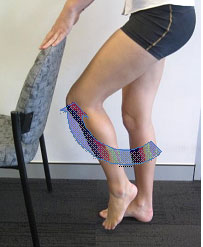
- BACKWARD LIFTS
Lift your operated leg backwards, keeping your knee straight. DO NOT lean forward. Hold for 3 seconds and lower
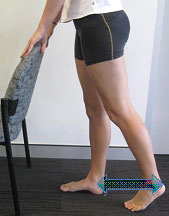
- CLIMBING STAIRS
GOING UP- Leave the crutches down with the operated “bad” leg.
- Lift the non operated “good” leg first onto the step Take
- your weight through your arms on the crutches.
- Then step the operated “bad” leg and crutches last up onto the step.
GOING DOWN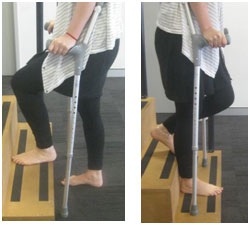
- Crutches come down onto the ground first.
- Step down the operated “bad”leg
- Take weight through the crutches
- Follow with your non operated “good” leg
WALKING
Continue to use your crutches/frame for the next 4-5 weeks until reviewed by your Surgeon or Physiotherapist, who will then advise you whether you need to keep using your crutches/frame.
Remember it is better to have a good walking pattern using two crutches than to limp and risk losing balance. A good gauge is when you are able to walk the distance of a street block and using little pressure through your arms, you may then be ready to wean off your walking aid.
The following exercises are designed to improve the range of movement in your hip, and strengthen the muscles surrounding it. You should only exercise within the limits of pain.
Start with 10 repetitions of each exercise, 3 times a day and gradually increase the number of repetitions until you can perform 20 to 30 of each exercises without significant difficulty.
(Exercises 3 & 4 are to be done with a slide-board under your leg).
MOVEMENTS TO AVOID
Avoid activities that involve moving your hip to the full extent of its movement in any direction while the joint capsule heals for the first 3 months.

Do not force your leg back and twisted out behind you (like a golf swing position)
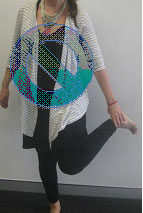
Do not twist and bend your knee up and across the midline of your body
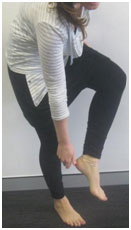
Do instead, dress by bringing your foot to the inside so your knee points outwards

